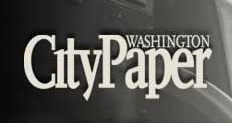WASHINGTON CITY PAPER

Keep Your Eyes Open collects Glen E. Friedman's photographs of Fugazi.
By Aaron Leitko
August 29, 2007
In the afterword to Keep Your Eyes Open, Glen E. Friedman pays Fugazi a hefty compliment: “I loved this band—so much so that they changed photography for me.”
That’s pretty high praise from any photographer, but it’s especially powerful coming from Friedman. By 1987, when Fugazi started playing shows, Friedman’s work had already cataloged the rising Los Angeles punk and hardcore world, captured some of the most iconic figures of hip-hop, and helped define skateboarding culture by documenting the seminal Dogtown scene. But, according to Friedman, it’s praise that the band earned.
Scheduled to be released in celebration of the 20th anniversary of Fugazi’s first show on Sept. 3, 1987, Keep Your Eyes Open assembles photographs that Friedman took of the band throughout its career?—from the group shot included on the back cover of Repeater to live photos that capture the overwhelming intensity of the band’s shows to a few intimate and unexpected moments shot during soundcheck. “The amount of photos I have of them is more than any other single subject I have in my archives,” says Friedman.
Friedman met Ian MacKaye at a Bad Brains show at CBGB in 1981; the two have remained close friends ever since. Friedman had long been a fan of Minor Threat and Dischord when he first saw Fugazi perform at a small show at Columbia University. He was immediately floored.
“There was an energy and intensity that just struck me,” says Friedman, who grew up watching bands such as Black Flag and the Dead Kennedys play. “They took it to another level—?a more mature level.”
Friedman began shooting Fugazi whenever he got the chance. Most of the photographs included in Keep Your Eyes Open were taken during live performances.
In his past work, Friedman had often used flashes when shooting bands—but with Fugazi he experimented and tried to find a different method.
“I decided to focus on natural lighting so it would be more organic and less of a rock star thing,” says Friedman. “A flash can be so distracting. It’s also lighting somebody up in a special way, like bringing your studio with you.”
“Glen is very economical in terms of his photo-taking,” says MacKaye. “I’ve done many photo sessions with people over the years. Glenn is probably the only photographer I’ve ever done a session with where he would stop and stand someplace, and he’d look at you and not take any pictures. Other people just burn through film. He just composes in the camera. You just stand there while he thinks about it. If he takes one, that’s usually the one he ends up using. He’s not interested in waste. He’s not a shutterbug, that’s for goddamned sure.”
Whenever he photographed the group, Friedman tried to capture all four members. “With a band like Fugazi, the ethics were so important, the democracy,” he says. “Overall, I would be shooting for getting as many of them in the frame as possible—and if you can get the audience in the frame, it tells more of the story. My goal is always to tell the story of the entire night in a fraction of second.”
With Keep Your Eyes Open, that story is one that Friedman feels he was intimately involved. “I think there is a personal perspective throughout the book. When I took those Dogtown pictures, I was one of them, and people could tell that. I was a participant in the scene. Same thing with hip-hop,” says Friedman. “I’ve seen them in a way and spent time with them in a way that I think most other people haven’t. Hopefully my pictures tell that story a little better than people who are just pure documentarians.”
